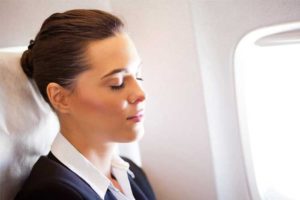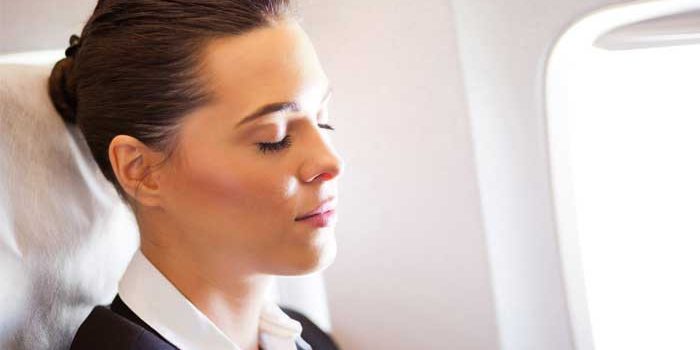 Some people are so afraid of flying, they won’t even consider traveling or stepping foot in an airport, let alone get on a plane. But there are even more people who will fly to travel, but experience intense stress and anxiety during a flight.
Some people are so afraid of flying, they won’t even consider traveling or stepping foot in an airport, let alone get on a plane. But there are even more people who will fly to travel, but experience intense stress and anxiety during a flight.
Often times, people who experience this stress and anxiety will turn to alcohol and/or prescriptions to get through their flight. However, there are some healthier ways to calm down, relax and perhaps even enjoy your flight.
Avoid caffeine
As much as you may love coffee, avoid any caffeinated beverages before and during your flight. Not only does it worsen the dehydrating effects of being on a plane and cause you to go to the bathroom more frequently, but it may also put you in an overly hyper state of mind, which can exacerbate your stress and anxiety.
Choose your seat wisely
When booking or boarding a flight, try to pick a seat at the very front of the cabin. Turbulence is usually greater in the back of the plane – you may be less likely to feel its full intensity at the front of the plane.
Don’t resist turbulence
Instead of thinking the worst, think of turbulence like bumps in the road when you’re in a car. Try to not tense up or fight the feeling of turbulence. Instead, let your body sway with it.
Keep yourself distracted
It could be easy to get lost in your own thoughts of stress and anxiety during a flight, so come prepared to distract yourself. Bring a book, do a crossword puzzle, watch a movie – anything that will keep your mind too occupied to drift off into morbid thoughts.
Listen to peaceful music
Music can be very powerful when it comes to our thoughts and moods. Listening to calming and peaceful music may help soothe your mid-flight stress. Plus, it can help drown out sounds that are perfectly normal flight noises that may sound a little scary to you.
Bring a rubber band
Consider wearing a rubber band around your wrist. If at any time before or during your flight, you feel yourself start to become anxious, stressed or agitated, snap the rubber band against your skin. The slight pain can quite literally help snap you back to reality and take your mind of noises or turbulence.
Try slow, rhythmic breathing
It’s a very common reaction for your heart rate and breathing to accelerate if anxiety kicks in before or during a flight. This fight-or-flight reaction is an automatic response to a frightening trigger. You can take control back by taking deep breaths through your diaphragm. Taking steady and rhythmic breaths will help you fight hyperventilation and relax your muscles. Controlled breaths with gradual exhalations can calm your nerves and reduce your stress levels before, during and after takeoff.


